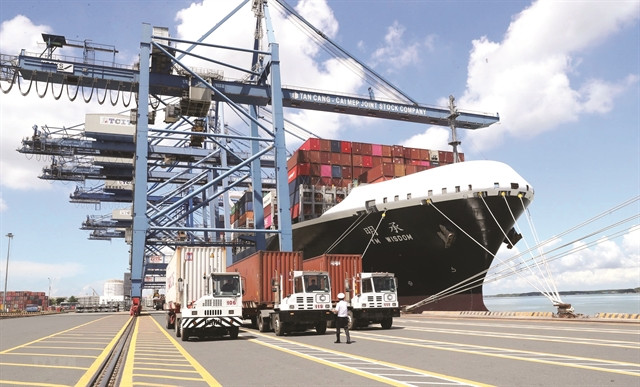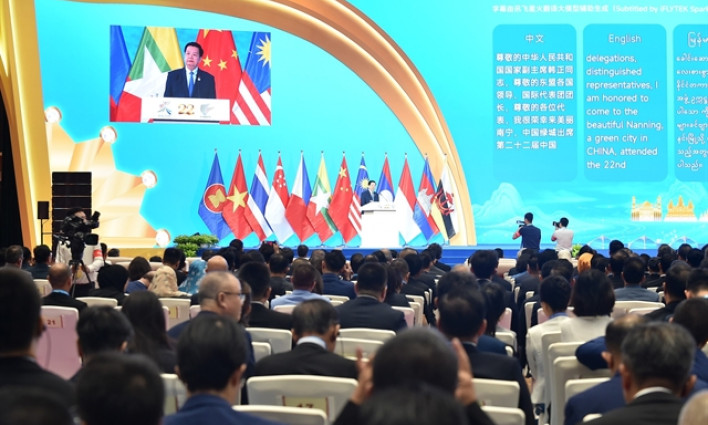Enterprises expect orders in remaining months, pinning hope for a better year in 2024
The world’s aggregate demand was showing signs of recovery and the inflation was forecasted to have peaked, meaning that it would be on a decrease which would lead to a recovery in trade and an increase in employment.
Although difficulties remained, enterprises expect to see slight improvements in orders in the coming months, pinning hopes on easing inflationary pressure for a better year in 2024.
Phạm Tùng Linh, deputy director general of Đức Giang Garment Company Limited, said that garment companies had been in a lot of difficulties in the first half of this year. The sector saw a drop of 16.7 per cent in January - July over the same period last year to US$21.5 billion, initial statistics of the Ministry of Industry and Trade showed.
However, positive signs were emerging from major export markets of Việt Nam where inflationary pressure was easing.
Linh said that orders were returning, and his company was speeding up looking for orders for 2023.
Việt Nam Textile and Apparel Association (Vitas) said that the garment sector would see increases in orders in the remaining months of this year, which would contribute to offsetting the fall in the first half of this year.
The association reset the export target at $39-40 billion this year, around 10 per cent lower than 2022.
The Việt Nam Association of Seafood Exporters and Processors (VASEP) forecast that in the favourable condition, seafood export could reach more than $4 billion in the last five months of this year, bringing the total revenue to more than $9 billion for the full year, meaning a drop of 15-16 per cent against 2022.
VASEP said that the ground for the forecast included positive economic developments in major markets which would fuel consumption demand. In addition, demand in markets such as the US and China tended to increase when the inventories were dwindling, and orders were prepared for the year-end festivals and the New Year.
Phan Thị Thanh Xuân, Deputy President of Việt Nam Leather Footwear and Handbag Association, said that inventories in major markets, included the US, were falling, creating room for distributors to place new orders. She said that Việt Nam continued to be the choice of major brands such as Nike and Sketchers.
Still, difficulties would continue, Xuân said, adding that not until the first quarter of 2024, could the footwear industry get out of trouble.
She said that strengthening trade promotion was important to help enterprises find orders and overcome the difficult time.
The Ministry of Industry and Trade asked trade offices in foreign markets to increase trade exchange to create opportunities for increasing exports, adding that although domestic and global economic situations were forecast to continue in difficulties, demand for imports would gradually recover in the remaining months of this year.
According to Nguyễn Tiến Quang, Director of the Việt Nam Chamber of Commerce and Industry’s branch in Đà Nẵng, the world’s aggregate demand was showing signs of recovery, and the inflation was forecast to have peaked, meaning that it would be on a decrease which would lead to a recovery in trade and an increase in employment.
There was a ground for the expectation that the export would see increase in the remaining months, Quang said.
He pointed out that the loosening monetary policies in many countries would help production and trade have a chance to recover, especially in major markets such as the US and EU.
The Việt Nam Trade Office in the US urged Vietnamese firms to invest in production to upgrade technologies toward lowering emissions to meet increasing requirements from buyers.
Trần Ngọc Quân, Vietnamese Trade Counselor in Belgium and the EU said that although the demand in the EU decreases, the EU’s standards for goods were increased, forcing producers renovate production to meet requirements in term of sustainable development, environmental protection, and carbon emission.
He urged enterprises to study market requirements carefully as well as new global trends in production and consumption to have appropriate transition in production for sustainable exports.






